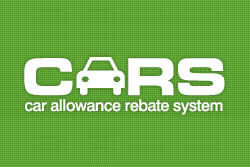
The Cash for Clunkers Program, the Car Allowance Rebate System (CARS), is closed. Nonetheless, here's what to do to avoid or report fraud.
Questions and Answers about C.A.R.S.
President Obama signed into law the Cash-for-Clunkers bill, officially called the Car Allowance Rebate System (C.A.R.S.). The National Highway Traffic Safety Administration (NHTSA) is managing the program that will pay consumers up to $4,500 in credit for trading in their cars or trucks for new vehicles that are more fuel efficient.
These answers are based on the provisions of the Consumer Assistance to Recycle and Save Act of 2009. For more information, visit the C.A.R.S. website, or call the CARS Hotline at (866)-CAR-7891 or TTY at (800)-424-9153.
What will the NHTSA do to guard against fraud and ensure that the CARS payments go to the right people?
The NHTSA is aware that some organizations have already begun to convey incorrect information about how dealers and individuals can participate in the CARS program. The only official site providing information on this system is the agency's website, www.cars.gov. Note that the suffix ".gov" indicates it is an official government site. Other sites may or may not have correct information, but no other website plays an official role in this program. The NHTSA urges great caution in providing any information over the internet to any website that purports to be related to this program.
The CARS program will not request electronic submission of information from individual consumers.
Under the law, the NHTSA will make electronic funds transfers only to a registered dealer that has submitted the required proof of a completely eligible transaction. The NHTSA is working to create a system that will provide payments only for eligible transactions under the CARS program. The NHTSA will develop a registration system to identify licensed, franchised new vehicle dealers and to obtain the banking and tax identification information necessary for making secure electronic transfers. Only registered dealers will have access to the payment system.
As noted above, at the time of the transaction at the dealer, the consumer who is trading in the "trade-in vehicle" will need to provide evidence of ownership of the vehicle and proof that the vehicle has been continuously registered and insured to the same person throughout the last 12 months. To prevent repeated use of the program by the same person, the NHTSA anticipates that the consumer will need to provide evidence of identity, such as a driver's license, and permit that information to become part of the documentation of the transaction.
The dealer will have every reason to avoid entering into a transaction for which the dealer cannot be reimbursed under this program. The dealer will be expected to verify that the vehicle being traded in and the vehicle being purchased or leased are both eligible under the program. This will entail, with regard to the trade-in, making sure that the registration and insurance information is accurate and that the vehicle is in drivable condition. For both vehicles, the dealer will need to verify their combined fuel economy.
With regard to the trade-in, the NHTSA is considering various measures to ensure that the vehicle is never used again as an automobile in this or any other country. The NHTSA intends to enforce the Act's requirements strictly and vigorously and to conduct audits to detect any possible violations.
If I think fraud is being committed, how do I report this?
Call the Hotline of the Office of the Inspector General (OIG) at the U.S. Department of Transportation. The OIG Hotline is an important tool that is used to facilitate the reporting of allegations of fraud, waste, abuse, or mismanagement in the Department's programs or operations, including the CARS program.
Allegations of fraud may be reported by DOT employees, grantees, contractors or the general public. The Hotline is set-up to receive allegations in variety of forms, including by email (hotline@oig.dot.gov), regular mail (DOT Inspector General, P.O. Box 708, Fredericksburg, VA 22404), fax (540-373-2090) or a toll free number (1-800-424-9071). OIG's Hotline is open 24 hours a day, seven days a week and is operated by a third party contractor.
You can also call (866)-CAR-7891 or TTY at (800)-424-9153 dedicated to calls about the program.
The Internet Crime Complaint Center (IC3) is a partnership between the Federal Bureau of Investigation www.fbi.gov (FBI), the National White Collar Crime Center www.nw3c.org (NW3C), and the Bureau of Justice Assistance www.ojp.usdoj.gov/BJA (BJA). IC3's mission is to serve as a vehicle to receive, develop, and refer criminal complaints regarding the rapidly expanding arena of cyber crime. The IC3 gives the victims of cyber crime a convenient and easy-to-use reporting mechanism that alerts authorities of suspected criminal or civil violations.
Are there penalties for violations related to the CARS program?
Yes. The money Congress has provided for this program is intended only for eligible recipients, and the requirement to destroy the trade-in vehicle is an important part of the program. To protect consumers, dealers, and others, the NHTSA intends to enforce the Act and the implementing regulations strictly. The CARS Act has provisions specifically aimed at preventing fraud. A person who violates the Act or the implementing regulations could be subject to a fine of up to $15,000 per transaction. While the NHTSA may provide discretionary relief for innocent clerical errors, the NHTSA intends to prevent fraud in the first place and penalize any fraud that occurs.
Willful misstatements or false reporting made to the government in connection with the program may also make a person liable for criminal penalties under applicable laws.
Related articles
- Cash for Clunkers Program - Car Allowance Rebate System (CARS)
- Cash For Clunkers Program - Consumer FAQ
- Cash For Clunkers Program - Dealer FAQ
 Print
Print Email
Email







